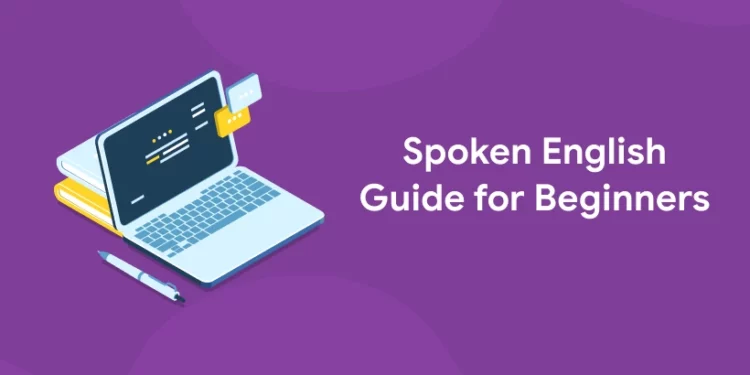Table of Contents
When it comes to studying English, we all have various goals in mind. Some study English to improve their language skills, while others learn English to increase their job prospects. Some learn English to make travelling across the world simpler, while others learn English to pursue their academic goals in foreign countries. Whatever the case may be, learning a new language might appear to be a difficult undertaking. But there’s no need to be concerned. This post will show you how to improve your English-speaking abilities step by step.
Check out this video on Spoken English by Entri in Malayalam!
Spoken English Guide for Beginners 2025
The techniques for learning to speak English fluently are discussed below. However, you must have a clear understanding of why you are studying the language. The motivation for learning a language can have a significant impact on the focus areas of lessons. Generally, the techniques mentioned below could be applied to any circumstance.
- When learning a language, you should have a strategy in place. You’ll need to pick how you’ll learn the language (books, online study materials, short courses, etc.) as well as how much time you’ll dedicate to it. The manner of learning and the amount of time allocated might differ from one person to the next. This is because some of the students or workers may be full-time students or workers with little free time, respectively. As a result, having a well-planned timetable allows them to progress more quickly in their learning.
- If the size of the portion makes you nervous and demotivated, try another approach. This is for setting a short-term objective, such as planning for a single day or an hour. You are ready to begin learning after you have a solid strategy in place.
- Don’t lose faith in yourself if you can’t learn English speaking in a short amount of time. If you still can’t view movies without subtitles, don’t give up. This is because native-level speech is exceedingly difficult to understand and necessitates a large quantity of linguistic input over time. As your exposure to language grows, so will your degree of comprehension.
- After learning a new word, phrase, or idiom, look for examples of how to utilise it in different situations.
- To improve your listening abilities, listen to audio samples created by native speakers. Spoken English videos assist you in comprehending both the context and the material.
- Using engaging and exciting materials (for example, a movie) will help you comprehend the words, their pronunciation, and even the context in which they are used.
- When you first begin studying, don’t take all of the possibilities accessible to you. The broth is spoiled by too many cooks. Choosing too many resources will also lead to confusion. You won’t know where to begin, and planning will become more difficult. Make certain that the content in your study materials is of high quality.
- The learning source must be understandable and appropriate for your learning style. It should be straightforward enough to be recommended for the difficulty level you select.
- Another key thing to remember when practising your speaking is to avoid focusing too much on your grammar. Grammar is vital, but learning it may be tiresome. When studying spoken English, focusing too much on grammar can stifle your progress. As a result, you should devote only a limited percentage of your time to studying it at first. As your language skills improve, you may progressively increase this number.
- Gradually expand your vocabulary. The key to success is the dynamic repetition of words you’ve learnt. Dynamic repetition is when you use a phrase you’ve learned in new ways. This may be done by writing or pronouncing the word three or four times in different ways.
How Can I Start Speaking in English from Basics?
1: Which of the sentences below is grammatically correct?
Here are a few pointers to help you enhance your English understanding and speaking abilities.
- Listen to English radio.
- Watch English-language television.
- Go to the English language movies.
- Making up and practising conversations with a partner
- Use introductory-level texts.
- Start with children’s books.
- Use ESL readers if you can.
- Read advertisements, signs, and labels carefully.
- Keep a diary to record new terminology you learn.
- Write words in alphabetical order in the vocabulary notebook.
- Create some sample sentences for each new term you learn
- Keep an English journal
- If you want to sound like a native speaker, interact with them and attempt to copy their style as much as possible. However, this is unimportant since the main goal of language learning is to improve communication, and you don’t have to sound precisely like a native speaker to do so.
- Consult a dictionary whenever necessary.
Click here to get a free Spoken English demo!
Spoken English Course for Guaranteed Confidence and Career Growth
Spoken English Course by Entri App: Enhance your communication skills, gain certification, and boost your career with confidence.
Join Now!Conversational English for Everyday Use
Given below are a few topics to practise the English-speaking skills that will help you in making daily conversations.
- Greetings in general
- Informal conversation
- A shopping trip
- Make an appointment with the dentist
- Giving directions
- Asking a pedestrian for directions
- Using a taxi
- In a library
- A visit to the doctor
- Renting an apartment
- Using public transportation
- At the hairstylist’s
- At a railway station
- In a supermarket
- In the fitness centre
How to Improve Your Spoken English
- Be brave and speak to as many people as possible. Feel no remorse for making mistakes. The more you practise, the better your pronunciation and vocabulary will get.
- A smartphone might be a useful tool for language learning. Record yourself speaking and then listen to how your English comes across to others. Use your favourite productivity apps to plan your preparation time and keep track of all the new words you learn.
- Choose a word to focus on and practise using it in different sentences. Use the word until you’ve mastered it, then keep using it regularly.
- Enrol in an English cookery class or a reading club. Make it a point to do and share anything you like doing in English. Practising English will be more pleasurable if you utilise it to discuss topics that interest you.
- Have a debate with your classmates on any of the English topics that interest you. Use as many words as possible to express your argument, and pay close attention to the other points so you can respond effectively.
| Download free PDFs on various aspects of the English language! | |
English Vocabulary Basics
A list of words/ phrases that a beginner must learn before beginning their spoken English course is provided below.
| Context/ type of phrase | Phrase | Description |
| Greeting: Learning numerous methods to greet someone is quite important for connecting with others because they are always a part of any interaction. Let’s have a look at some of the most frequent greetings: | Good morning | Formal salutation is used in the morning till noon. |
| Good afternoon | formal salutation used from 12 pm to 6 pm | |
| Good evening | formal salutation used after 6 p.m. | |
| Good night | when you go to bed | |
| Hello / Hi | employed when you meet someone | |
| Bye | utilised when you leave | |
| How are you? | inquiring how a person is | |
| Please | a well-mannered word to add to a request | |
| Thank you | an answer to receiving something | |
| Have a nice day | to wish someone well | |
| Question Words: Here are a few terms that are often used in English. Beginning with some question terms will aid you in asking and providing information. | What | to ask about a thing |
| Who | to ask about a person | |
| How | to ask about the method of doing something | |
| When | to ask about a date or time | |
| Where | to ask about the location | |
| Why | to ask the reason | |
| Which | to ask about a choice between a limited number of things | |
| Words describing things | There | used to describe a place |
| This | to indicate a thing near you | |
| That | to indicate a thing, not near you | |
| Verbs | Come | move to this place |
| Do | complete an action | |
| Go | move from one place to another | |
| Have | possess something | |
| Help | give assistance | |
| Like | have a good opinion of a person or thing | |
| Need | have necessity | |
| Can | be able / have an ability | |
| Travel | Accommodation | the place where you stay |
| Flight | a journey on a plane | |
| Arrival | the moment of arriving at your destination | |
| Departure | the moment of leaving | |
| Baggage allowance | how many kgs of luggage (bags) you can take | |
| Delay | when transport leaves later than scheduled | |
| Passenger | a person travelling on transport | |
| Destination | the place you are going to | |
| Passport | the document you need to enter another country | |
| Downtown | the centre of a city |
Spoken English Course for Guaranteed Confidence and Career Growth
Spoken English Course by Entri App: Enhance your communication skills, gain certification, and boost your career with confidence.
Join Now!Sentences Used in Everyday Conversation in English
This is a massive list of frequently used English conversational statements. You must converse with a large number of professionals daily. It might be a friend, lover, boss, employee, or anybody else. Learn how to utilise these fundamental conversational statements in your everyday life.
- What do you mean?
- What do you want from me?
- Please give me your hand.
- I did not understand.
- How are you?
- I feel sad about your loss.
- Everything is fine.
- You are my responsibility.
- What is your problem?
- He is still not well.
- Hope to see you next time.
- Do you know what I mean?
- It was nice meeting you.
- I am very pleased to meet you.
- You are getting late for school.
- I don’t know.
- It’s none of your business.
- Excuse me!
- I will catch you soon.
- I made it.
- What are you doing today?
- How old are you?
- Are you fooling me?
- This is not fair.
- I will try my level best.
- Come quickly.
- What can I do for you?
- How can I help you?
- I will come again.
- Is everything alright?
- Please say something.
- Talk to you later.
- What is your contact number?
- Nice to meet you.
- Let’s celebrate!
- When will you reach?
- Will you please help me with this?
- Get out of my sight.
- Thank you for the advice.
- Sorry for the inconvenience.
- Where is your office?
- Thank You very much.
- It was nice to talk with you.
- I do not want to know anything.
- What are you talking about?
- Please be seated.
- Thank you for inviting us.
- What is happening here?
- I wish you a happy married life.
- Stop crying.
- Can I ask you something?
- well done! Keep it up!
- I am feeling tired today
- Many happy returns of the day.
- I appreciate it.
- What is going on?
- Do you agree with me?
- Have a nice day.
- Did you get my point?
- I’m on my way.
- I am sorry.
- Could you give me some money?
- Do you speak English?
- Good day to you, Sir!
- Are you joining us?
- This is not a joke.
- Why are you late?
- Drive carefully.
- Do not disturb!
- It’s my pleasure.
- I will call you later.
- What would you like to have?
How Can I Upgrade my English by Self-study?
The reality is that the internet is not only the finest resource for learning English, but it is also the most convenient option to study at home at any time. You also don’t have to stay at home all day to study. You can take the resources you need with you and study anywhere you choose once you have them.
The nicest thing is that you may study at your speed without having to follow the instructor’s teachings or your classmates’ achievements (progress). You may study at your speed, making it a more efficient learning experience for you. First and foremost, you become less reliant on others to learn English. You have more motivation to prove that you can learn English on your own because you are studying alone. Success will not be difficult to achieve if persistent motivation is there.
- Play music and learn all the lyrics
- Watch English videos about topics that interest you.
- Learn how to make the most of English-language media.
- Online English quizzes can help you improve your grammar.
- Online chat with friends
- Read e-books, articles, and periodicals on the internet.
- Write about something that’s on your mind.
- Join online language exchange websites.
- Try to speak English as much as possible everywhere you go.
Click here to learn Spoken English
Best Books for Spoken English Beginners
The table below is a selection of some of the best books for improving your English-speaking abilities.
| No. | Book name | Author/ series |
| 1 | Practice Makes Perfect Basic English, Second Edition | Julia Lachance |
| 2 | Learn English With Short Stories | English Language and Culture Academy |
| 3 | ESL Beginner Premium Edition with e-flashcards | Sherry Boguchwal |
| 4 | Basic Grammar in Use Student’s Book with Answers | William R. Smalzer, Joseph Chapple and Raymond Murphy |
| 5 | Short Stories in English for Beginners | Olly Richards |
| 6 | Tagalog Picture Dictionary | Jan Tristan Gaspi, Sining Maria Rosa Marfori |
| 7 | Short Stories in English for Intermediate Learners | Olly Richards |
| 8 | English Grammar Rules 101 | Melony Jacobs |
| 9 | English Made Easy Volume One | Jonathan Crichton, Pieter Koster |
| 10 | English Language Learning with Super Support
Beginners – Book 1 |
Chris Balli |
| 11 | 102 Simple English Conversation Dialogues for Beginners in American English | Jackie Bolen |
| 12 | ESL Beginner | Sherry Boguchwal, Johanna Pugni, Dianne Ramdeholl, Linda Robbian |
| 13 | The Quick and Easy Way to Effective Speaking | Dale Carnegie |
| 14 | 50 Very Short Conversations | Mark Kulek |
| 15 | Practice Makes Perfect: English Conversation | Jean Yates |
| 16 | Talk English: The Secret to Speak English Like A Native In 6 Months For Busy People | Ken Xiao |
| 17 | Spoken English in Dialogues: 833 common English sentences used by native speakers in everyday life situations |
Julia Deniskina |
Spoken English Guide for Beginners- Conclusion
By following the above-mentioned tips and resources, you can start off your journey onto achieving mastery of the English language. It might seem futile and overwhelming at the beginning, but with platforms like Entri, you can attain the necessary boost in your venture. Remember, language learning is a never-ending process, rather it is a continuous honing process. All the best!











